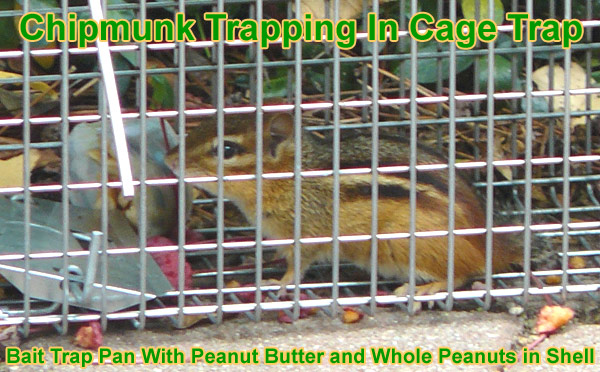
How To Get Chipmunks Out Of Your Garden
Chipmunks are really cute little animals, and many people will find it difficult to become angry at them even with the damage that they can do to a domestic garden. These small squirrels are natural hoarders like their larger relatives, and the small pockets of nuts and other foods will often be stored in a number of small holes in and around the garden. Dealing with chipmunks may not always be straightforward, but in some cases the animals that are to be found around the gardens may find their way into a domestic home, where they can cause even more problems.
The Damage Caused By Chipmunks In A Garden
Although chipmunks are well known for their behavior in terms of foraging and storing food in a number of caches around the garden, they can also cause a number of other types of damage too. One of their favorite things to do is to dig up the laboriously planted bulbs and seeds from a garden and to store them along with their food, or simply to eat them. One issue is when the garden is actually adjacent to a house, as they are known for tunneling and can dig underneath the foundations of a building, or can even dig under a shed or decking.
Much like any other animal they can carry diseases and parasites, but chipmunks aren't generally considered to be a threat to people.
Trapping And Removing Chipmunks
One of the most common methods to deal with chipmunks is to catch them in a trap, and there are both live and lethal traps available that can be used to catch the chipmunks. Because they are animals that are generally surface foragers, most people will have success by placing traps in the areas of the garden where there is the most chipmunk activity. When it comes to baiting the trap, foods such as corn, grains and cereal can be very good, but generally the most successful is peanuts and peanut butter.
Because chipmunks are quite small animals and are often present in large numbers, those people using cage traps will usually choose a repeater trap that can catch a number of them rather than using a single catch trap. It is important to check the traps regularly, and once you have caught the chipmunks, to relocate them as quickly as possible, and to release them at least five miles away from your property. The majority of states won't have any regulations about catching and releasing chipmunks, but it is still worth checking local regulations to ensure you aren't breaking any laws.
Alternative Solutions To Chipmunk Problems
There are many products on the market that claim to be able to repel all rodents and pests, but unfortunately these are generally unsuccessful. Many people will have tried dumping quantities of mothballs into the holes, but often these will appear in a neat pile next to the hole the following day. Other people will try to use a repellent such as fox or wolf urine, but these can also be hit and miss in terms of their success.
One of the best ways to encourage chipmunks to stay away from your garden is to keep pets, especially cats that will have access to the garden. Chipmunks will be able to scent the presence of the predators, and they will naturally try to stay away. Chipmunks are very difficult animals to remove, and if you are trapping and removing them or have a cat and they are still a problem, then it may be worth referring to a professional wildlife removal expert to try and solve the problem, and to make your garden less attractive to chipmunks.
Go back to the
How To Get Rid of Chipmunks home page.